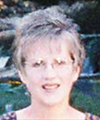Exceptional Cancer Patients
Any cancer patient interested in learning more about the advances being made in diagnsis and treatment should read CURE magazine. Cancer patients can receive a free subscription by signing up at: http://www.curetoday.com/. The magazine focuses on updates, research, and education for cancer patients and survivors. The Winter, 2005 issue has an article called, “Diagnostic Tools.” A small excerpt from that article talks about the exceptional recovery of a patient named Mr. Carley:
When Carley awoke from his third surgery, the surgeon told him that he had 38 tumors ranging in size from a marble to a golf ball. "He said they just closed me back up because there was nothing they could do. But I remember him saying, ‘Chris, they’re always coming up with new treatments.’ "
Five months later he began taking Gleevec. Within a month his tumors vanished, a response his physicians described as "jaw-dropping." Now a 10-year survivor with eight grandchildren, Carley has since founded the Chicago chapter of the Lance Armstrong Foundation and the Carley Cancer Research Center.
The gentleman that they gave as an example, Mr. Carley, sounds like one of the exceptional cancer patients we sometimes hear about, who defy the odds. The CURE article doesn’t go into the specifics of how he made such a remarkable recovery. If he followed the pattern of other exceptional patients, he had social support, expressed his emotions, asserted his basic needs without endangering his relationships, and he felt empowered, first by participating in his recovery and, in his case, after his treatment by finding something that he got excited about doing.
- Social Support can come from family, friends, church, or a cancer support group, which are available in most areas. If your medical facility doesn’t provide a support group, you may want to volunteer to start one. When I started a journaling support group, I got more out of it than anyone else.
- Expressing emotions is possible by talking to a professional or family OR by writing a journal. People are surprised by the notion that they should express their deepest feelings, but research has shown that doing so is essential to recovering from cancer.
- Empowerment happens in a different way for each patient. It can be as simple as guided meditation or as complex as beginning a research center like Mr. Carley. Bringing a sense of control back into the one’s life is the third trait of exceptional cancer patients.
- And finally, exceptional patients have a passion for living. They find something that brings them joy, and they pursue it with renewed vigor.
Carley founded a research center, but the rest us can’t or won’t want to do that. What we can do is find things that comfort us. I chose a symbol of comfort (something very meaningful to me) and keep it near my bed. Each time I see that symbol I remember that everything in life can work out well. Then to bring back a sense of control I chose to do things for myself that bolster the immune system. For me, that was as simple as eating more foods that contain antioxidants and practicing yoga. I believe that it is not as important what a person chooses to do, as it is to investigate what feels right, to trust one’s intuition, and then to actually make some kind of physical change. Putting a symbol of comfort by my bed reminds me, “all can be well.” If I practice yoga three times a week, it becomes an affirmation that, all is well.




